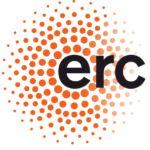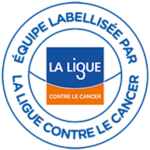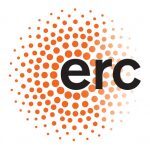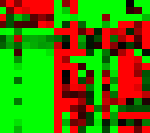Anne Dejean is Research Director at INSERM, Professor at the Institut Pasteur and Head of the Laboratory of Nuclear Organization and Oncogenesis/Inserm U993. She graduated from Pierre et Marie Curie University in Paris and earned her PhD in Pierre Tiollais’ lab at the Institut Pasteur in 1988. Member of EMBO, of the French Academy of Sciences and of the American Academy of Arts and Sciences, she has received the Gagna and Van Heck Prize in 2003, the L’Oréal-UNESCO for Women in Science Awards in 2010, the Grand Prix INSERM in 2014 and the Sjöberg Prize in 2018. She was awarded two ERC Advanced Grants, in 2011 and 2018.
A cancer molecular biologist, Anne Dejean investigates the molecular and cellular mechanisms involved in the development of human cancers. She discovered that retinoic acid receptor (RAR) genes are mutated in liver cancer and a rare type of leukemia and deciphered the molecular and cellular bases for the cure of this leukemia, opening up unique perspectives for new differentiation and anti-tumor targeted therapy leads. She first found such a mutation in HBV-associated liver cancer, demonstrating that this virus, by inserting its genome into that of the hepatic cell, can disrupt neighbouring human genes and directly trigger the development of liver cancer. This discovery led A. Dejean’s team to clone the RARb gene and identify the first responsive element to retinoic acid. They then discovered the PML-RARa oncogenic fusion protein as the causative genetic event in acute promyelocytic leukemia (APL), dissected its oncogenic properties and elucidated the mechanims underlying the cure of APL by retinoic acid and arsenic, a treatment that remains the most efficient oncogene-targeted therapy described so far. Anne Dejean then demonstrated that a particular sub-nuclear structure, the PML Nuclear Body, is disrupted in APL and showed that both retinoic acid and arsenic are able to correct this cellular defect. She then showed that arsenic induces the post-translational modification of PML-RARa by the small SUMO protein as well as the degradation of the oncoprotein in APL.
Dejean’s lab next contributed to the emergence of the SUMO field by unveiling an as yet unanticipitated role for SUMO as a major epigenetic determinant of gene expression regulation, with a key role in the repression of innate immunity and the maintenance of cell identity. Her work opened up exciting avenues in regenerative medicine and cancer treatment through pharmacological modulation of sumoylation levels. Recent projects in her lab aim at understanding how SUMO on chromatin regulates cell fate decisions in normal and cancer states.






